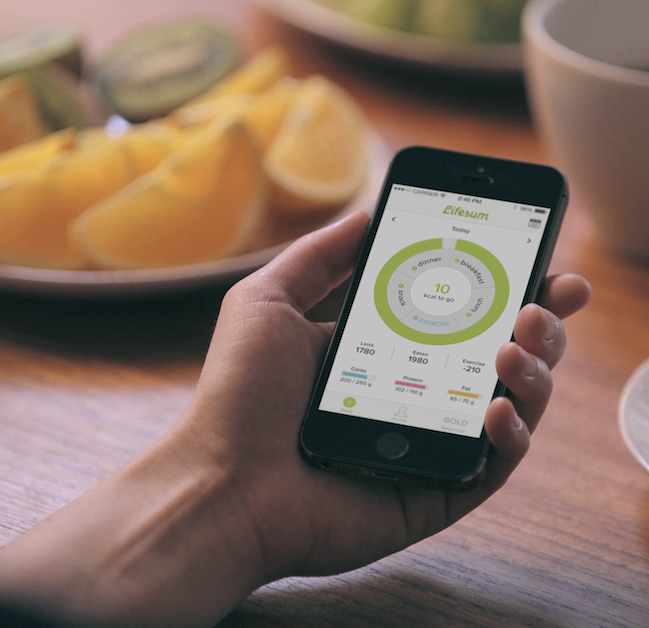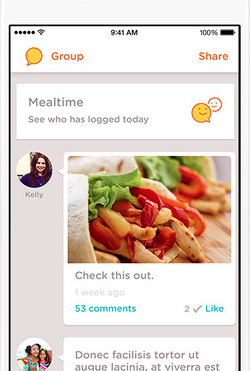4 weight loss apps you’ve probably never heard of – and the behavioral science behind them.
Sometimes my work world and personal life overlap serendipitously. This week I’ve been researching global diet trends, searching for new digital tools that help people lose weight.
I also decided to clear out a closet I’ve avoided like the plague – the closet full of my skinny clothes. These aren’t the clothes from last summer into which I could easily fit after losing 5 pounds. These are my pre-graduate school clothes. The ones I wore when I was running 25+ miles a week and going to the gym.
I’m not sure what was more strange: the fact that the clothes seemed so ridiculously small that no adult human should be able to wear them, or that, as I tore them off the hangers, I gave them to my giraffe-like 10 year-old daughter.
All this was heavy on my mind when I read a report on healthy eating trends around the world released last month by Neilson. Summarizing the information gathered from their survey of more than 30,000 individuals who claimed to be overweight in 60 different countries, the report looks at the ways we try to lose weight. Interestingly, the report made no mention of digital health tools.
Dieting is circuitous. We begin to diet because we feel bad about our size or weight, or at the recommendation of our healthcare providers. It can be difficult to maintain the willpower to create lasting behavior change, and most of the time, when we find restrictive diets difficult to stick with, we give up.
Then, we feel guilt and/or shame about our eating habits or body size and end up back where we started: at the beginning of a long, arduous journey to lose 5, 20, 50 pounds or more.
This cycle of eat, repent, repeat is self-destructive and ineffective.
It’s in our repenting stage that we’re likely to download a new weight loss app, or dig through our smartphones for one that we used consistently for a month or so and then forgot about completely. In fact, research shows that even when people like a weight loss app, usage decreases dramatically after the first month.
Weight Loss Apps Should Incorporate Proven Behavior Change Strategies
Calorie and fitness tracking often fail us. They are only as honest as we are. They can’t prevent us from cheating (on our diets, or in our tracking).
Tracking itself is an arduous task.
No matter how much we love about our tracking apps, most of us would like them to be more intuitive, and perhaps more addictive than food. So, what’s missing from the most popular apps?
One study from the University of Massachusetts Medical School found behavioral strategies to motivate, reduce stress, and aid in problem solving were missing from most mobile weight-loss apps.
Dr. Sherry Pagoto, Associate Professor of Medicine, lead author of the study, and co-founder of the University of Massachusetts Center for mHealth and Social Media, told nuviun:
“The key to success with both diet and mobile apps is finding the one you can stick with. I think apps that add more features than diet and exercise tracking are the ones to watch because evidence shows that people will only stick to diet tracking for so long. A more comprehensive approach is needed to help people make long-term lifestyle changes.”
In another study, from Brigham Young University, researchers coded 3,336 apps and identified three ways mobile weight loss apps affect our behavior.
- Predisposing apps increase an individual’s capability, say by providing health or nutritional information.
- Enabling apps are facilitators, they allow users to store and review their own health data.
- Reinforcing apps assist users in establishing or strengthening social relationships. They allow dieters to interact and encourage one another.
While some of the over 3,000 apps reviewed performed two of these functions, only 1.86% of them performed all three. This could be one reason why weight loss apps aren’t very sticky (I’m sure it has nothing to do with that jelly donut you ate for breakfast).
Inspired by Neilson’s survey of global healthy eating habits, I used App Annie to uncover new digital weight loss tools with global popularity. The following apps function as predisposers, enablers, and reinforcers.
Lifesum: From Stockholm, this app allows for easy tracking of food and exercise, and gives instant feedback about each meal or workout. Depending on the diet plan you choose, it grades your choices (low carb, low calorie, etc.), charts your progress, and allows you to share your experiences with friends.

Source: ShapeUp Club AB, Lifesum
Noom: This is my favorite new app! I tried it because it connects with my wearable of choice, Misfit, but also because it provides instant feedback on my food choices, along with nutrition and exercise coaching. Noom is headquartered in New York City, but has offices in Berlin, Seoul, and Tokyo.

Source: Noom, Inc.
CARROT Hunger: This is not your mother’s calorie tracker. CARROT provides judgmental feedback on – and sometimes punishment for – poor diet choices. Armed with iBeacon, the app will also warn users if they are approaching their calorie budget as they open the refrigerator. CARROT was released in mid-January, and so far, is only available in English.

Source: CARROT Hunger
My Diet Coach: Available in 23 languages, this app treats dieting as a winnable mental game. Users begin by getting to know their avatar, setting a weight loss goal, and identifying a change motivator, whether it’s to fit into a wedding dress, live longer, or be an example for their kids. Then, as users track their daily food intake and activities, My Diet Coach gives reminders and motivational feedback to help make weight loss achievable.
Jenn Lonzer has a B.A. in English from Cleveland State University and an M.A. in Health Communication from Johns Hopkins University. Passionate about access to care and social justice issues, Jenn writes on global digital health developments, research, and trends. Follow Jenn on Twitter @jnnprater3.
The nuviun blog is intended to contribute to discussion and stimulate debate on important issues in global digital health. The views are solely those of the author.
Log in or register for FREE for full access to ALL site features
As a member of the nuviun community, you can benefit from:
- 24/7 unlimited access to the content library
- Full access to the company and people directories
- Unlimited discussion and commenting privileges
- Your own searchable professional profile
.jpg)

